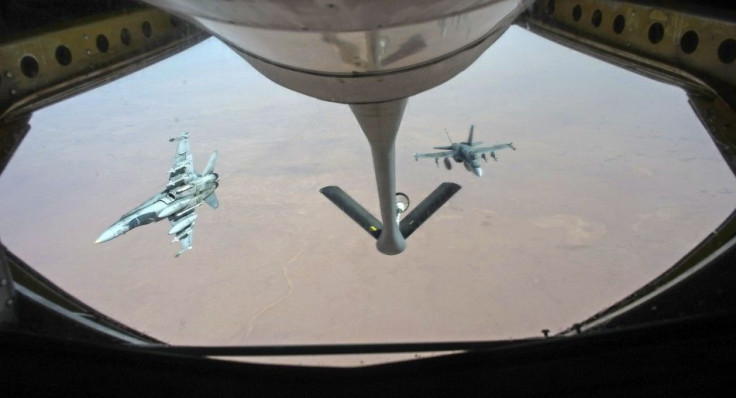Canadian CF-18 Jets Hit ISIS Weapons Facility; Feds Deny Existence Of Canadian Commandoes On Ground

Two Canadian CF-18 jets had hit a weapons facility owned by the ISIS over the weekend. CTV News said the facility was located in Fallujah, Iraq. The story came out as the federal government denied the existence of Canadian commandoes on ground in Iraq.
The building, CTV News said, serve as the ISIS' storage facility for its improvised explosive devices, or IEDs. It is also where the group produces the said bombs, which they used against the Iraqi security forces.
The Canadian CF-18 jets were deployed to act as air support for the Iraqi security forces. The Department of National Defence, or DND, said striking the ISIL facilities was utterly important because it "disrupts their ability to plan and mount offensive attacks."
As of Dec 18, based on DND's website, Canada has conducted a total of 211 sorties, including
- 134 sorties conducted by CF-18 Hornet fighters.
- 36 stories by CC-150 Polaris aerial refueller, delivering some 1,911,000 pounds of fuel to coalition aircraft.
- 41 reconnaissance missions by the CP-140 Aurora aircraft.
Canada has earlier deployed some 69 Special Forces soldiers, way before the lawmakers even greenlighted in October the country's participation to go into war versus ISIS. The Special Forces soldiers, however, are only there to advise security forces fighting the Islamic State group in northern Iraq. That is their only mission. They were not in any way sent to participate in the ground operations versus the mad group.
"The Canadian Special Operations Forces Command's (CANSOFCOM) role in Iraq is to provide training, military advice and assistance teams," Maj.-Gen. Michael Hood, director of the Strategic Joint Staff of the Canadian Armed Forces, said in a statement. "Members in Iraq are working within a well-defined mission that was passed in the House of Commons. We have been clear that this mission does not involve ground troops in a combat role."
The type of support the CANSOFCOM is giving the Iraqi Security Forces are military training, including shooting, movement, communications, and mission planning. They are likewise being taught "how to effectively employ their various weapons systems."
QMI news agency earlier reported elite JTF2 (Joint Task Force 2) unit snipers were seen on the ground killing off ISIL members in Iraq. One of five squads listed on CANSOFCOM's web page, QMI said it was alleged the JTF2 snipers used a Macmillan TAC-50 rifle nicknamed "Big Mac" to hunt down the militants.





















